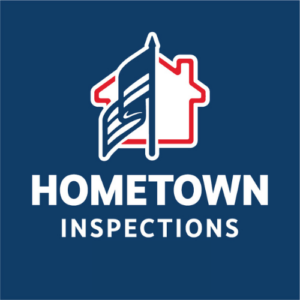Choosing the Right Inspector
By: ASHI (American Society of Home Inspectors)
Choosing the Right Inspector
Finding a Home Inspector
When the homebuyer has found the right home, they will need to get a professional home inspection. It is critical to find a quality home inspector to understand the condition of the property before making this important investment. It can be confusing and hard to know where to start the search for a professional home inspector. ASHI can help homebuyers find the right inspector to fit their needs.
Real Agents and Other Referrals
If the homebuyer is using a real estate agent, chances are that they have offered referrals of inspectors they have worked with. Many real estate agents and home inspectors build relationships over the years, and it can be an effective and quick way to get leads on potential inspectors. Another referral source homebuyers can utilize is their friends and family who recently have worked with an inspector.
Choosing the Right Inspector
Getting Started
The best place for a homebuyer to start is by reviewing the property listing to familiarize themselves with their prospective home. Having a good understanding of the home and its specific features will create a useful frame of reference. Similarly, the homebuyers should take note of any special inspection needs that they or their families may have. Understanding these factors can make the home inspector research more effective.
As homebuyers search through potential candidates, they will come across the various ways home inspectors distinguish themselves and their offerings. For homebuyers, it can be difficult to make distinctions among the candidates. Below, ASHI provides common questions and detailed explanations to help homebuyers make educated decisions as they consider candidates.
Is the inspector licensed?
Depending on where the homebuyer is located, the practice of home inspection may require a license by the state government. View ASHI’s State Regulations section to find out which states require home inspectors to be licensed. The homebuyer should verify that any potential home inspector holds a valid license, if required by their state. ASHI makes this step simple for homebuyers in regulated states, as all ASHI members must be licensed to join the association in these states. Most states require a license, however, there are still some that do not have any regulations regarding the practice of home inspection.
Does the inspector belong to ASHI?
In unlicensed states especially, ASHI recommends homebuyers hire an inspector who is an active ASHI member. While their state may not have a requirement to practice home inspection, all ASHI members subscribe to the ASHI Standard of Practice and Code of Ethics. ASHI developed the first Standard of Practice and Code of Ethics in the United States, and are widely respected. In addition, where there is state licensing the state may require their own standard of practice. This ensures that the homebuyer will receive a quality inspection across the nation regardless of local ordinance, when they hire an ASHI member.
What are inspector’s specialties and certifications?
As the homebuyer starts search for a home inspector, they may come across a wide variety of specialties and certifications, sometimes signified through some sort of badge. To anyone unfamiliar to home inspections, it may be overwhelming to discern what they all mean and how they affect the homebuyer’s inspection. ASHI recommends that homebuyers do their due diligence and verify the credibility of the certifying body.
Is their background checked?
When hiring any professional to work inside the home, it is important build a sense of trust. Inspectors can achieve this is by undergoing a background check. Since 2017, ASHI requires all new applicants to submit to a criminal background check through the Background Verified Inspector Program (BVI). The trend of background checks is spreading throughout the industry as more and more inspectors see the benefit it offers their clients.
What are inspector’s specializations and extra services?
Many inspectors will refer to the various specializations or services that they offer their clients.
A key detail to consider is that each inspector has their own business model. Some additional services may be included as part of the home inspections and others may cost an additional fee. In some instances, these are standalone services that can be administered separate from the home inspection itself. For any questions concerning a specific service, ASHI recommends the homebuyer discusses with their prospective inspector prior to the inspection.
What experience and expertise do they possess?
Knowledge and experience are crucial in an occupation such as home inspection. Each home is different and requires the home inspector to adapt to and analyze every situation they encounter. Homebuyers may choose to look for seasoned inspectors with years of experience under their belt. However, experience comes in different forms in addition to the number of inspections conducted. Home inspection is unique because this profession predominantly is a second career for many inspectors. The profession attracts individuals from a wide array of previous careers, including construction, engineering and the military. Many second-career inspectors bring years of relevant experience and valuable skills. If an inspector is new to the profession, they may not be new to the technical information and knowledge required to be successful and effective in the industry.
How do inspectors communicate?
Communication is an important part of the home inspection process. As homebuyers contact candidates, they will get a sense of how the inspectors communicate with their clients. The homebuyer should take note of this and consider the inspector’s communication style. The homebuyer will want to find candidates that they communicate well with, in order to get the most out of their inspection and report. A good place to start is the pre-inspection agreement written contract, which nearly all inspectors use. This document covers all the details of an inspection, outlining everything that is included and not included in the scope of their inspection.
